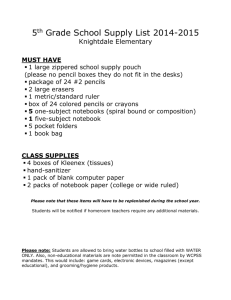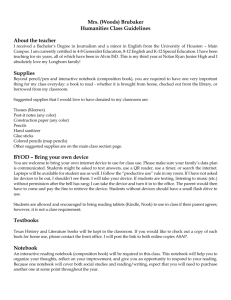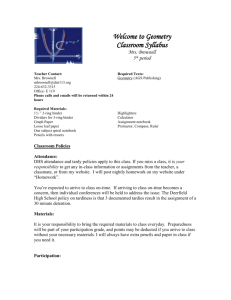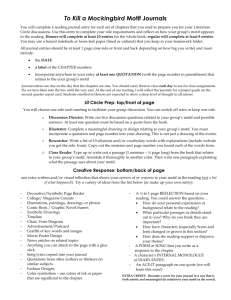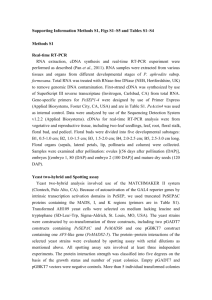9th Grade Honors English
advertisement
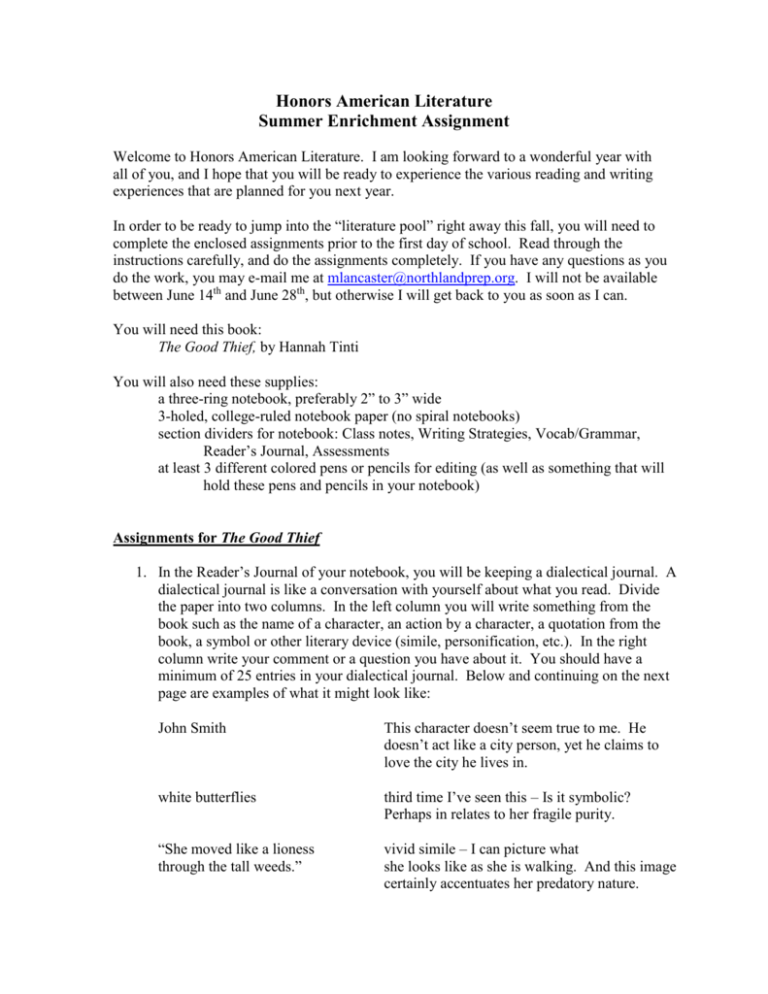
Honors American Literature Summer Enrichment Assignment Welcome to Honors American Literature. I am looking forward to a wonderful year with all of you, and I hope that you will be ready to experience the various reading and writing experiences that are planned for you next year. In order to be ready to jump into the “literature pool” right away this fall, you will need to complete the enclosed assignments prior to the first day of school. Read through the instructions carefully, and do the assignments completely. If you have any questions as you do the work, you may e-mail me at mlancaster@northlandprep.org. I will not be available between June 14th and June 28th, but otherwise I will get back to you as soon as I can. You will need this book: The Good Thief, by Hannah Tinti You will also need these supplies: a three-ring notebook, preferably 2” to 3” wide 3-holed, college-ruled notebook paper (no spiral notebooks) section dividers for notebook: Class notes, Writing Strategies, Vocab/Grammar, Reader’s Journal, Assessments at least 3 different colored pens or pencils for editing (as well as something that will hold these pens and pencils in your notebook) Assignments for The Good Thief 1. In the Reader’s Journal of your notebook, you will be keeping a dialectical journal. A dialectical journal is like a conversation with yourself about what you read. Divide the paper into two columns. In the left column you will write something from the book such as the name of a character, an action by a character, a quotation from the book, a symbol or other literary device (simile, personification, etc.). In the right column write your comment or a question you have about it. You should have a minimum of 25 entries in your dialectical journal. Below and continuing on the next page are examples of what it might look like: John Smith This character doesn’t seem true to me. He doesn’t act like a city person, yet he claims to love the city he lives in. white butterflies third time I’ve seen this – Is it symbolic? Perhaps in relates to her fragile purity. “She moved like a lioness through the tall weeds.” vivid simile – I can picture what she looks like as she is walking. And this image certainly accentuates her predatory nature. Fred slips glove into her pocket What is he up to? Why all the sneaky things? I don’t really like him. “…the dark aspect of his look that silenced her…” really sets the mood – Is it foreshadowing something bad? 2. By either annotating in your book or by writing notes of page numbers and comments in your 3-ring notebook, record every time you happen across the following motifs: hands, traps, and stories. (Remember a motif is a recurring object, concept, or structure in a work of literature. A motif is important because it directs one to see main points and themes that the author is trying to express.) You will encounter several examples of each motif, so look out for them. Then write a few comments next to each example that you find. Your comments next to each motif may include (but is certainly not limited to) questions you have about the motif, ideas it relates to, or reflections on elements of the story. Here are some suggestions to help you complete your work. 1. Get the books as soon as you can. Hastings or Barnes and Noble are fine (as well as any of the independent book stores in town), but if you find a used one at Bookman’s you can save money. 2. Pace your reading so that you are not stuck doing all the reading and writing in August. The book is not difficult to read, so you shouldn’t have any problem finishing the work if you spread it out over the summer. 3. Feel free to discuss your reading with your friends or family. Share ideas. Sometimes it helps to see things that you might have missed. 4. These assignments will be due on the first day of school, no extensions, no excuses. Have a great summer! Don’t forget to let me know if you have any questions of difficulties. See you in August. Mr. Lancaster


